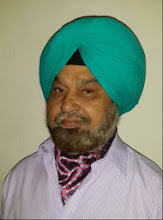Indian Military has been 'combating' insurgency and terrorism in India since its independence. Methodology adopted by it to combat this 'indigenous unrest' has been unique and almost unparalleled; that's how it should be when You are 'controlling' unrest within Your own country, initiated by Your own countrymen. All the time the effort is to get 'them' in the mainstream.
Lt Gen Vijay Oberoi's recent Article in the Tribune 'Army’s role is conflict management, not resolution' should be read in this context.
He writes, "Regular forces usually fail to grasp the essentially political nature of the conflict. Nor do they understand the limits of their own conventional military power in such political and operational settings. A major characteristic of such operations in our country is application of combat power to enhance "civil control" rather than cause attrition. In this respect the Indian Army is quite different from many others, including those of USA and Pakistan."
He further goes on to say, "The Indian Army believes such operations need to be people-centric and conducted in a manner that they generate a groundswell for stability and peace. Rules of engagement are formulated imaginatively in the backdrop of political, legal and moral parameters. The populace constitutes the "centre of gravity" and therefore winning their "hearts and minds" is central to all efforts. Effective interface with media, as part of public information and perception-management, is also necessary. "
Lt Gen Vijay Oberoi's recent Article in the Tribune 'Army’s role is conflict management, not resolution' should be read in this context.
He writes, "Regular forces usually fail to grasp the essentially political nature of the conflict. Nor do they understand the limits of their own conventional military power in such political and operational settings. A major characteristic of such operations in our country is application of combat power to enhance "civil control" rather than cause attrition. In this respect the Indian Army is quite different from many others, including those of USA and Pakistan."
He further goes on to say, "The Indian Army believes such operations need to be people-centric and conducted in a manner that they generate a groundswell for stability and peace. Rules of engagement are formulated imaginatively in the backdrop of political, legal and moral parameters. The populace constitutes the "centre of gravity" and therefore winning their "hearts and minds" is central to all efforts. Effective interface with media, as part of public information and perception-management, is also necessary. "
Read the full Article: Mindshare of Indian Civil Society
Does it bear on the Civil-Military Relations?
Sukhwindar









